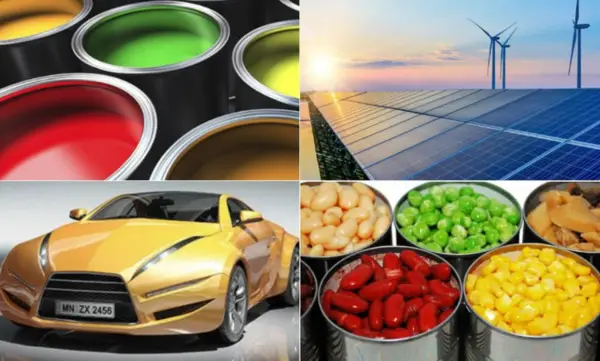Epoxy Resin
Epoxy resin is a class of thermosetting polymers made from monomers that contain at least two epoxide groups. They provide strong adhesion, chemical resistance and other specialized properties. Due to these qualities, epoxy resins are used in a variety of consumer and industrial products. These resins are used in building and construction applications can help increase the lifespan of buildings by improving the durability of the structural parts, engineering adhesives, and paints.
Orson’s epoxy resins provide a protective layer that separates food and drinks from the metal used to make their cans. The epoxy resin coatings also help to minimize the corrosion of the metal, which could compromise the safety of the food or drink. Epoxies are used in a range of consumer and industrial applications, due to their durability, strong adhesion, chemical resistance and other specialized properties.
Renewable energy sources, such as wind, solar, natural gas and new battery technologies, depend on epoxy technology innovations to help them become more efficient, affordable and scalable. Epoxy resins used in building and construction applications can help increase the lifespan of buildings and decrease the need for refurbishing and repainting, by improving the durability of structural parts, engineering adhesives and paints.
Epoxy Resin Coating in India
Few example of application of epoxy resins are:
- Paints and Coatings: Epoxy-enhanced paints dry quickly and provide a durable, protective coating. They are useful for factory cast iron, cast steel and cast aluminum applications, and are used to support metal casings by helping them withstand damages from bumps or other impacts. Epoxy coatings include anti-corrosive primers and abrasion- and fire-resistant coatings.
- Flooring: Epoxies play an important role in flooring applications, particularly in environments that require sterile surfaces, such as medical settings and food-processing facilities. The durable nature of epoxies means that epoxy-coated floors can be sanitized using stronger cleaning products.
Epoxies are used in high-performance and decorative flooring, such as terrazzo, chip and colored aggregate flooring are also some application of epoxies. and can improve the aesthetic appeal of materials like marble. Epoxy flooring can also be augmented by adding contrasting vinyl chips to the top epoxy layer, or other additives like adding grit to give floors an anti-skid texture.
- Plumbing and Pipes: Epoxy resins are used to make composite pipes and tanks, and as coatings for traditional steel products. Because epoxy pipe lining tends to be durable and resistant to chlorine and microbes, it can be a viable alternative for replacing old piping.
- High-Performance Adhesives: High-performance epoxy adhesives can be used to manufacture laminated wood for decks, walls and roofs. Epoxies are generally more heat- and chemical-resistant than many glues and can adhere to wood, metal, glass, stone and some plastics.
- Automotive :Epoxy-based coating technology has been used on vehicles for more than 30 years. A thin, anti-corrosive epoxy-based coating can be applied to the auto body as a primer, and then cured and covered with a topcoat that protects the primer from UV light damage. Epoxy resins can help provide adhesion to metal and resistance to rust and corrosion on the vehicle body and other metal parts. Use of epoxies in vehicles, can also help reduce the weight of the automotive components, contributing to enhanced fuel efficiency and lower CO2 and other emissions.
- Sports and Leisure – In this industry equipment like tennis rackets, skis, golf equipment, hockey sticks, fishing rods and poles, kayaks and bicycles lighter, stronger and more durable.2 Resin coatings are applied to boats because they are excellent adhesives, highly resistant to moisture absorption and can provide strong abrasion resistance.
- Food Packaging – Epoxy resins in the food industry have been used in food packaging since the 1950s and provide a protective layer to separate food and drinks from the metal used to make cans.1 If epoxies are not used, the metal could corrode and cause bacteria to penetrate the cans. This could harm the safety of their contents as well as the freshness and nutritional value of the food. Cans coated with epoxy can have a longer shelf life, so consumers can store food for longer periods of time. Epoxy resins also allow local seasonal food to be exported year-round while helping to preserve taste, texture and color.
Glass packaging, such as those used in canning food, also typically rely on epoxies to protect metal lids from corrosion. Be sure to contact Orson Resins and coatings today for more information on Resins for FRP Tanks.


